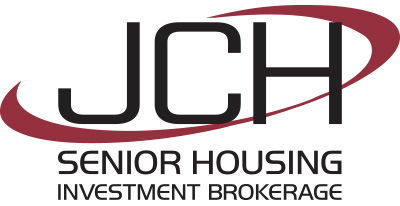Senior Housing Escrow
The senior housing industry continues to be a robust investment platform full of opportunities. New players are looking for ways into the senior housing industry. Meanwhile, many current owners are contemplating whether or not it is the right time to sell their senior housing investments. In several ways, today’s higher prices are a perfect reason for those already holding senior housing assets to sell. These owners have plenty of people willing to buy skilled nursing facilities and assisted living facilities at historically high prices.
With all the stars aligned to benefit those selling healthcare facilities, operators ready to sell need to maintain current performance levels for a smooth escrow and final transaction. Otherwise, the deal may fall through and cost sellers significant profit.
Protect the Value of Your Senior Housing Investments and Maintain Performance
When should operators in the senior housing industry choose to sell their senor housing assets? Overall, since current market conditions are favorable for sellers, they will already receive top dollar for their asset. However, individual sellers should list their senior housing investments when operations are running well or when the operations are experiencing an ascending trend.
There are a few general rules operators should remember to follow when selling in the senior housing industry.
First, assess the physical plant to ensure it is in good repair. Make all necessary repairs before starting the marketing campaign. Except for needed repairs, refrain from making remarkable changes to the plant. For example, it would be unwise to suddenly change the flooring in the assisted living facility after listing the asset for sale. The buyer may not like the flooring and could potentially change the terms of the deal. In a more serious situation, complications may arise during the construction period and slow the escrow process or even halt the transaction altogether.
Second, it is critical to increase or maintain the facility’s census at the current or even higher rental rates. In other words, the beds must remain full. This is true for any facility in the senior housing industry.
Third, expenses should remain consistent unless there is an area where savings can be achieved without affecting the facility’s revenue or census. Make sure that if expenses are cut, it does not affect resident care, revenue or census.
Fourth, do not hire any unnecessary staff. It is important not to alter the method of attracting new residents in the senior housing industry, especially if a current referral agency has been working well. The old adage “if it isn’t broken don’t fix it” are words to live by.
Finally, it is a wise decision not to alert the facility staff of the sale. This could create multiple layers of issues. First, staff members may feel their jobs are endangered and leave in search of work elsewhere in the senior housing industry.
More seriously, they may leak the information to residents. In turn, residents may feel uncomfortable and abandoned by current owners and choose to move out on their own terms. Overall, news of the sale may lower staff morale and work ethic, cause panic and compromise the overall operations of the facility.
Once the senior housing asset for sale enters escrow, the facility is under even greater scrutiny. Pay attention to the details that make your senior housing asset a good buy.
Other Caveats During the Purchase and Sales Agreements
The escrow period in the senior housing industry does not open until the Purchase and Sales Agreement (PSA) is completed and signed. The PSA is not signed until all schedules are attached and accepted by the buyer. The buyer typically is not required to fund the escrow deposit until the PSA is completed. Once again, it is during this time that the senior housing asset for sale is under the greatest amount of scrutiny. It is also the most fragile time when the deal can change.
Read: Choosing A Sales Price
Once the PSA has been completed and signed, the escrow period and due diligence period begin. Typically, the buyer’s lender produces a list of requested due diligence items. It is the seller’s responsibility to assemble and deliver these items as quickly as possible.
If items detailed on the due diligence list cannot be produced for any reason, the buyer must be notified in writing which items are unavailable. It is important to remember that in most timelines, the due diligence period does not officially begin until the buyer receives all available items requested on the list.
For sellers listing their senior housing assets, it is imperative to deliver all items on the list with honesty and completion. Any missing details can cause turbulence. Ninety-nine percent of the time, buyers in the senior housing industry will take advantage of weaknesses and discrepancies. They often take the opportunity to renegotiate the sales price. In some cases, they cancel the sale altogether.
While unforeseen circumstances cannot be helped, negligence is a costly mistake. Continue running your facility as if you were going to keep it for the next 10 years, this will help ensure the transaction closes.
Work with the JCH Group for the Best Results in the Senior Housing Industry
The JCH Group is the leading brokerage in the senior housing industry. Our combined experience and expertise has successfully closed hundreds of transactions and increased the wealth of hundreds of our clients. There is no senior housing investment sale we cannot improve.
The senior housing industry is ripe with opportunity. Whether selling or buying properties, make your sale or acquisition count with the investments specialists at the JCH Group. We have experience with independent living facilities, skilled nursing facilities, assisted living facilities, memory care facilities and portfolio management.
Call us for your free facility valuation, we are happy to answer your questions and make your next senior housing investment count.
